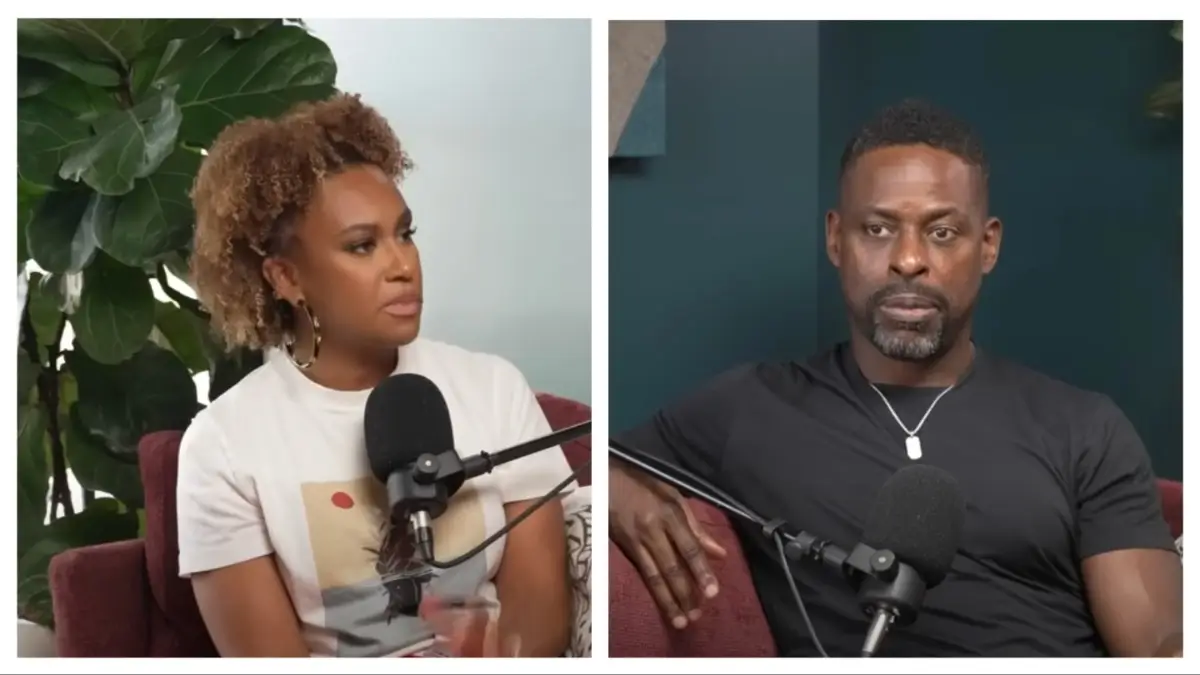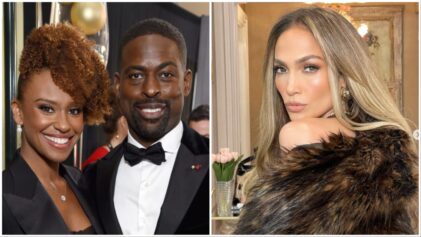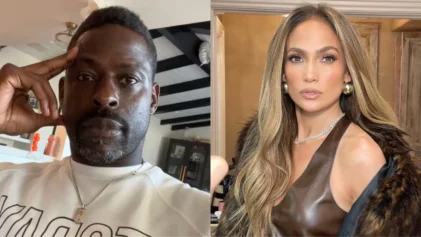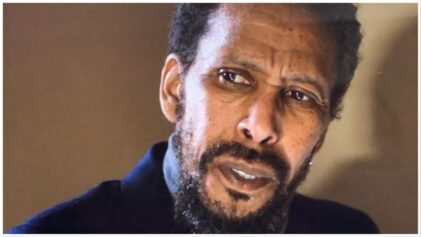Sterling K. Brown may have been one of the beloved stars of ABC’s “This Is Us,” but in Hollywood, he is still a Black man trying to avoid career-ending pitfalls. The actor recently got candid during a conversation on his and his wife, Ryan Michelle Bathe’s podcast “We Don’t Always Agree” about cancel culture and blowback that white entertainers seemingly skirt.
The couple was discussing the difference between Kevin Hart’s decade-old homophobic joke controversy derailing his invitation to host the Oscars in 2019 and singer John Mayer’s 2010 comment that his “d—k is sort of like a white supremacist” is easily forgotten. Both Hart and Mayer have recovered from the incidents, but as Brown and Bathe shared, that is not always the case for Black people in the business.

“I have observed behavior of my white counterparts on set where people will get loud and, you know, frustrated, and it is couched as being passionate or just sort of like animated. Like, it’s given like a moniker that is not angry, right,” said the Academy Award-nominated actor.
But if the roles were reversed, he is certain that he would labeled in a way that portrays him as a threat. “I’d see it happen—I go, ‘If I did the exact same thing, I’d not get the pass,’” he said. Bathe agreed.
Moreover, Brown dissected how the weight of having to be hyperaware of how a single wrong action could be his downfall has informed how he interacts with peers. “Just by being Black in general, like the level and emotional amount of latitude for bad behavior, you have different consequences. … I don’t come anywhere close to it,” he said.
Kevin Hart talks 'Cancel Culture' with The Sunday Times:
— Pop Crave (@PopCrave) June 15, 2021
“When did we get to a point…where people were supposed to operate perfectly all the time? I’ve been canceled, what, 3 or 4 times? Never bothered. If you allow it to have an effect on you, it will." pic.twitter.com/fCyfVelSnJ
Brown even noted that “When women come into my trailer on set” he yells, “‘You can leave the door open!’ Doors swing wide open. Anybody can stick they head in, ‘Hey, what y’all doin?’ We was six feet, Jack, post-covid, pre-covid, whatever it is, because, like in my mind, it’s always like…I already felt like people were looking for a reason.”
For Bathe, she said that her takeaway from the moment is that “Cancel culture has been weaponized as a way for certain people to avoid accountability and then to help other people avoid accountability and say, ‘Well, this is just cancel culture coming for an innocent person’.. If cancel culture were a real thing, it would come for everybody equally.”
Their discussion was all too real for fans who recognized its root as “racism.” “We have been marketed and promoted to be viewed this was since slavery,” an Instagram user wrote when The Art of Dialogue posted a snippet of the conversation. An individual who agreed with Bathe’s sentiments said, “I think cancel culture is actually just a concept coined and upheld only in the social media world.”
Another user said that Brown was protecting himself in more than one way when they commented, “Door open 6ft he is not trying to catch no me too energy.” The #MeToo movement was coined in 2006 by sexual assault survivor Tarana Burke.
The social vehicle was intended to help women of color heal from their own sexual traumas. It gained popularity in 2017 during the takedown of Hollywood figures like Harvey Weinstein, who was accused of sexually coercing actresses to sleep with him in hopes that he would catapult their careers.
Lastly, a fourth comment read, “That’s why Tyler and 50 built their own; that’s what we have to do. We don’t need them anymore.” Tyler Perry and 50 Cent have both launched film and television studios, respectively, in Atlanta, Georgia, and Baton Rouge, Louisiana. Speculation is now rife that Katt Williams will join them with the launch of his own entertainment compound in Alabama after the comedian reportedly purchased a defunct military base in that state.


